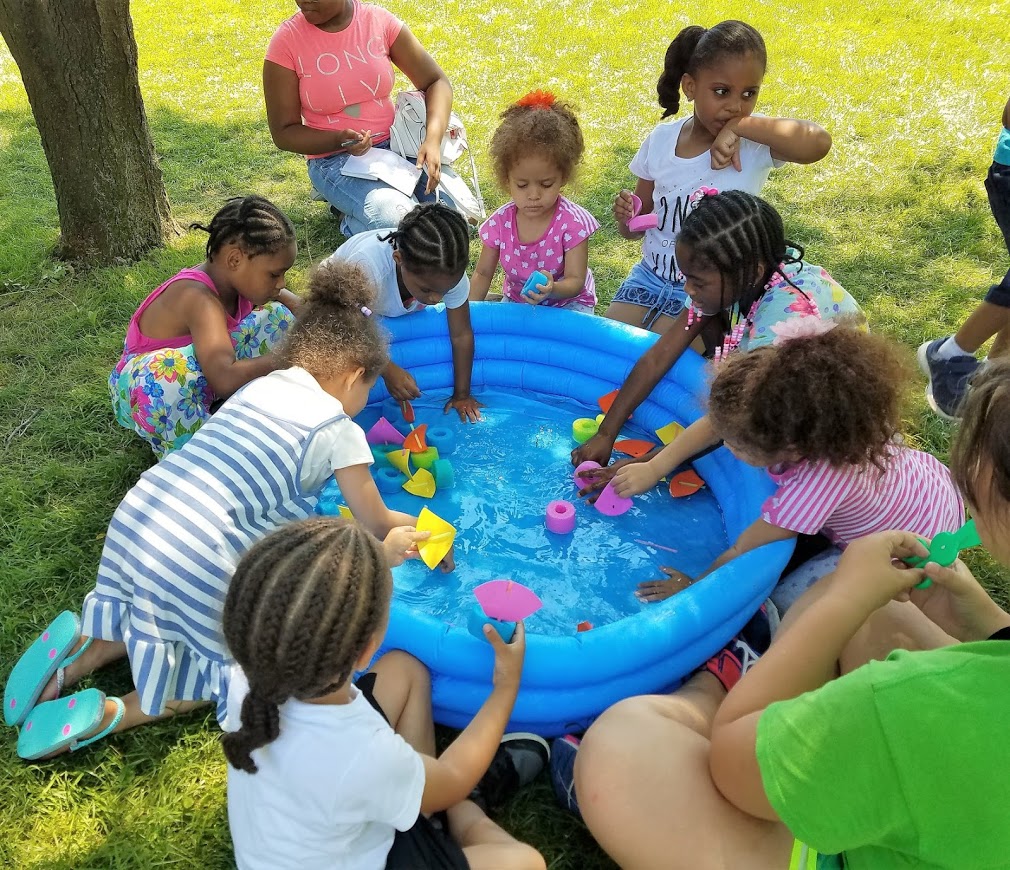Keep Kids Learning this Summer!
Though there are conflicting reports about “summer learning loss,” one thing is for sure: summer presents an opportunity for learning growth! At CLEF, we like to encourage all students (and adults for that matter!) to be constantly learning! While you may enjoy lazy mornings, vacations, or other summer activities, please look for fun, educational chances. The kids in your life have had a difficult school year, and by adding spontaneity and adventure, education can be exciting again.
You may have your children already enrolled in summer camp (many CLEF schools have them), but here are other suggestions to start you thinking on creative ways to incorporate learning this summer:
- Plan “surprise adventures.” Think outside the typical tourist spots for these family field trips. Look for factory tours, Renaissance festivals, historic home tours, jazz concerts, ethnic festivals, botanical gardens, county fairs, living history farms, planetariums, animal sanctuaries, historic battlefields, lighthouses, and working ranches. Chicago has many well-know museums and attractions, but it also has lots of little gems, too! With places and events coming back, now is great time to visit someplace new!
- Teach your kids how to play chess. Don’t know how? Learn together! (A simple Google search will turn up some great starting points.) Once your kids master the basics, sign them up for a chess club. “Chess trains your brain to think critically—to discover like a scientist, create like a technician, innovate like an engineer, and problem solve like a mathematician,” explains Wendi Fischer, the Scholastic Director of America’s Foundation for Chess, a nonprofit organization that brings chess into schools.
- Hop on the bus, Gus! The next time you need to run errands with your kids, boost the fun factor (and build real-life skills) by taking a new mode of transportation, such as a subway, train, bus, trolley, or ferry. Ask your kids to help decipher the route and calculate the mileage and time it will take for the round trip.
- Ask kids to create their own board games. Let them choose something they love (i.e. dogs, cooking, Disney, soccer, etc.), and challenge them to design a board game around their passion. From creating the game board and researching their topic to figuring out the rules and writing simple directions for others to follow, this hands-on activity truly puts the fun in learning.
- Tap into the power of music. Challenge kids to rewrite the lyrics to some of their favorite songs or create a funny rap about their favorite TV show. Or ask them to put on their “advertising hats” and create a 30-second jingle to market their favorite toy, book, snack, or hobby.
- Let kids play with “traditional games” like tangrams. These traditional Chinese puzzles consisting of seven shapes helps build spatial and geometry skills. For a kid-friendly introduction to tangrams, read Grandfather Tang’s Story by Ann Tompert or Three Pigs, One Wolf, Seven Magic Shapes by Grace Maccarone. You can print your own tangrams, buy a more durable set (like Tangoes, Jr.), or solve online tangram puzzles.
- Teach with movies! After watching a movie together, go beyond “Did you like the movie?” and talk about the movie’s themes, such as respect, friendship, or kindness. Ask your kids why they think the characters chose a certain action or what the characters could have done differently for a better outcome. Challenge them to come up with an alternate ending.
- Got budding artists in the house? Ask them to redesign the cover of their favorite book or DVD. They can experiment with a variety of new images, color, words, and layout using simple art supplies or digital tools.
- Go letterboxing or geocaching. These outdoor treasure hunts require little more than a simple compass (for letterboxing) or a GPS-enabled device (for geocaching). Participants hide small, weatherproof containers for others to find in publicly-accessible places (such as trails, parks and gardens), and post clues online. “Finders” go online, choose a destination, and use the clues or GPS coordinates to go on a real-world treasure hunt.
- Declare a weekly “Kids in the Kitchen” day. Get kids baking cookies, and have them double or halve the recipe to help brush up on math skills. Invite them to read through your cookbook, find a dinner recipe, and write a grocery list of ingredients. As they shop with you, help them compare prices, look at price-per-unit, and calculate coupon savings. At home, prepare the meal together as they read, measure and follow directions.
- Get kids reading any way you can, including comic books, magazines, graphic novels, almanacs, joke books, recipes, game instructions, movie reviews, poems, restaurant menus, product descriptions, sports statistics, and song lyrics. And don’t overlook the value of listening to audiobooks; they can introduce kids to books above their reading level, writes Denise Johnson, Ed.D., in Reading Online, a publication from the International Reading Association. Johnson, a professor of reading education at the College of William & Mary in Virginia, adds that audiobooks teach critical listening and introduce new vocabulary, among other benefits.
- Encourage building for both boys and girls Don’t toss those blocks once your toddlers reach school age. Even older kids benefit from the process of building a structure because it involves motor skills, creativity, hand-eye coordination, critical thinking, math skills, problem-solving, and spatial awareness. Get your kids off the screen and do “in-person” learning! On the product-oriented side, choose from Legos, Keva Planks, CitiBlocs, Magna-Tiles, K’NEX, Tinkertoys, Erector sets, gears, and marble mazes. On the use-what-you’ve-got-at-home side, repurpose cardboard boxes, cardboard spools (from paper towels, bathroom tissue and gift wrap), toothpicks, craft sticks, and PVC pipe.
- Fuel your kids’ passions. Whether they’re into astronomy, U.S. presidents, music, horses, magic, gymnastics, or science, find age-appropriate ways to feed their interests with books (fiction and non-fiction), magazines, supplies, documentaries, performances, games, activities, field trips, websites, classes, and clubs.
By sneaking education into fun activities, you’ll keep your kids “accidentally” learning all summer long!

